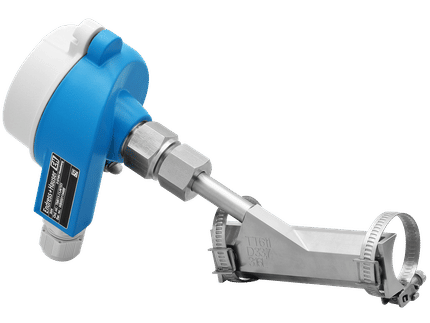| Minichromosome maintenance deficient 6 homolog (S. cerevisiae)
|
| Identifiers
|
| Symbol(s)
| MCM6; MCG40308; Mis5; P105MCM
|
| External IDs
| OMIM: 601806 MGI: 1298227 Homologene: 4322
|
| Gene Ontology
|
| Molecular Function:
| • nucleotide binding
• DNA binding
• DNA helicase activity
• single-stranded DNA binding
• ATP binding
• DNA-dependent ATPase activity
• identical protein binding
|
| Cellular Component:
| • nucleus
|
| Biological Process:
| • DNA replication
• DNA unwinding during replication
• DNA replication initiation
• transcription
• regulation of transcription, DNA-dependent
• cell cycle
|
|
| RNA expression pattern
|
|
More reference expression data
|
| Orthologs
|
|
| Human
| Mouse
|
| Entrez
| 4175
| 17219
|
| Ensembl
| ENSG00000076003
| ENSMUSG00000026355
|
| Uniprot
| Q14566
| Q3UC10
|
| Refseq
| NM_005915 (mRNA)
NP_005906 (protein)
| NM_008567 (mRNA)
NP_032593 (protein)
|
| Location
| Chr 2: 136.31 - 136.35 Mb
| Chr 1: 130.16 - 130.19 Mb
|
| Pubmed search
| [1]
| [2]
|
MCM6, or minichromosome maintenance deficient 6 gene is one of the highly conserved MCMs that are essential for the initiation of eukaryotic genome replication. The MCM complex consisting of this protein and MCM2, 4 and 7 possesses DNA helicase activity, and may act as a DNA unwinding enzyme.
The protein encoded by this gene is one of the highly conserved mini-chromosome maintenance proteins (MCM) that are essential for the initiation of eukaryotic genome replication. The hexameric protein complex formed by the MCM proteins is a key component of the pre-replication complex (pre_RC) and may be involved in the formation of replication forks and in the recruitment of other DNA replication related proteins. The MCM complex consisting of this protein and MCM2, 4 and 7 proteins possesses DNA helicase activity, and may act as a DNA unwinding enzyme. The phosphorylation of the complex by CDC2 kinase reduces the helicase activity, suggesting a role in the regulation of DNA replication.[1]
Gene
The MCM6 gene, MCM6, is expressed at very high level. MCM6 contains 18 introns. There are 2 non overlapping alternative last exons. The transcripts appear to differ by truncation of the 3' end, presence or absence of 2 cassette exons, common exons with different boundaries.
MCM6 produces, by alternative splicing, 3 different transcripts, all with introns, putatively encoding 3 different protein isoforms.
MCM6 contains two of the regulatory reagons for LCT. They are located in two of the MCM6 intrones, approximately 14 kb (-13910) and 22 kb (-22018) upstream of LCT [2]. One of them, the (-13910) region, has been shown to function in vitro as a cis element capable of enhancing differential transcriptional activation of LCT promoter [3]. Mutations in these regions are associated with lactose tolerance into adult life.[2]
References
- ^ Entrez Gene: MCM6 minichromosome maintenance deficient 6 homolog (S. cerevisiae).
- ^ a b Identification of a variant associated with adult-type hypolactasia Nat Genet. 2002 Feb; 30(2): 233-7 Free text
- ^ Lactase persistence DNA variant enhances lactase promoter activity in vitro: functional role as a cis regulatory element. Hum Mol Genet. 2003 Sep 15; 12(18): 2333-40. Free text
Further reading
- Ishimi Y, Ichinose S, Omori A, et al. (1996). "Binding of human minichromosome maintenance proteins with histone H3.". J. Biol. Chem. 271 (39): 24115-22. PMID 8798650.
- Holthoff HP, Hameister H, Knippers R (1997). "A novel human Mcm protein: homology to the yeast replication protein Mis5 and chromosomal location.". Genomics 37 (1): 131-4. doi:10.1006/geno.1996.0530. PMID 8921380.
- Harvey CB, Wang Y, Darmoul D, et al. (1997). "Characterisation of a human homologue of a yeast cell division cycle gene, MCM6, located adjacent to the 5' end of the lactase gene on chromosome 2q21.". FEBS Lett. 398 (2-3): 135-40. PMID 8977093.
- Tsuruga H, Yabuta N, Hosoya S, et al. (1997). "HsMCM6: a new member of the human MCM/P1 family encodes a protein homologous to fission yeast Mis5.". Genes Cells 2 (6): 381-99. PMID 9286856.
- Ishimi Y (1997). "A DNA helicase activity is associated with an MCM4, -6, and -7 protein complex.". J. Biol. Chem. 272 (39): 24508-13. PMID 9305914.
- Holthoff HP, Baack M, Richter A, et al. (1998). "Human protein MCM6 on HeLa cell chromatin.". J. Biol. Chem. 273 (13): 7320-5. PMID 9516426.
- Ohtani K, Iwanaga R, Nakamura M, et al. (1999). "Cell growth-regulated expression of mammalian MCM5 and MCM6 genes mediated by the transcription factor E2F.". Oncogene 18 (14): 2299-309. doi:10.1038/sj.onc.1202544. PMID 10327050.
- You Z, Komamura Y, Ishimi Y (2000). "Biochemical analysis of the intrinsic Mcm4-Mcm6-mcm7 DNA helicase activity.". Mol. Cell. Biol. 19 (12): 8003-15. PMID 10567526.
- Ishimi Y, Komamura-Kohno Y, You Z, et al. (2000). "Inhibition of Mcm4,6,7 helicase activity by phosphorylation with cyclin A/Cdk2.". J. Biol. Chem. 275 (21): 16235-41. doi:10.1074/jbc.M909040199. PMID 10748114.
- Izumi M, Yanagi K, Mizuno T, et al. (2001). "The human homolog of Saccharomyces cerevisiae Mcm10 interacts with replication factors and dissociates from nuclease-resistant nuclear structures in G(2) phase.". Nucleic Acids Res. 28 (23): 4769-77. PMID 11095689.
- Lee JK, Hurwitz J (2001). "Processive DNA helicase activity of the minichromosome maintenance proteins 4, 6, and 7 complex requires forked DNA structures.". Proc. Natl. Acad. Sci. U.S.A. 98 (1): 54-9. doi:10.1073/pnas.98.1.54. PMID 11136247.
- Enattah NS, Sahi T, Savilahti E, et al. (2002). "Identification of a variant associated with adult-type hypolactasia.". Nat. Genet. 30 (2): 233-7. doi:10.1038/ng826. PMID 11788828.
- Yanagi K, Mizuno T, You Z, Hanaoka F (2002). "Mouse geminin inhibits not only Cdt1-MCM6 interactions but also a novel intrinsic Cdt1 DNA binding activity.". J. Biol. Chem. 277 (43): 40871-80. doi:10.1074/jbc.M206202200. PMID 12192004.
- You Z, Ishimi Y, Masai H, Hanaoka F (2003). "Roles of Mcm7 and Mcm4 subunits in the DNA helicase activity of the mouse Mcm4/6/7 complex.". J. Biol. Chem. 277 (45): 42471-9. doi:10.1074/jbc.M205769200. PMID 12207017.
- Strausberg RL, Feingold EA, Grouse LH, et al. (2003). "Generation and initial analysis of more than 15,000 full-length human and mouse cDNA sequences.". Proc. Natl. Acad. Sci. U.S.A. 99 (26): 16899-903. doi:10.1073/pnas.242603899. PMID 12477932.
- Kneissl M, Pütter V, Szalay AA, Grummt F (2003). "Interaction and assembly of murine pre-replicative complex proteins in yeast and mouse cells.". J. Mol. Biol. 327 (1): 111-28. PMID 12614612.
- Yabuta N, Kajimura N, Mayanagi K, et al. (2004). "Mammalian Mcm2/4/6/7 complex forms a toroidal structure.". Genes Cells 8 (5): 413-21. PMID 12694531.
- Johnson EM, Kinoshita Y, Daniel DC (2003). "A new member of the MCM protein family encoded by the human MCM8 gene, located contrapodal to GCD10 at chromosome band 20p12.3-13.". Nucleic Acids Res. 31 (11): 2915-25. PMID 12771218.
- Ramachandran N, Hainsworth E, Bhullar B, et al. (2004). "Self-assembling protein microarrays.". Science 305 (5680): 86-90. doi:10.1126/science.1097639. PMID 15232106.
- Yu Z, Feng D, Liang C (2004). "Pairwise interactions of the six human MCM protein subunits.". J. Mol. Biol. 340 (5): 1197-206. doi:10.1016/j.jmb.2004.05.024. PMID 15236977.
|







